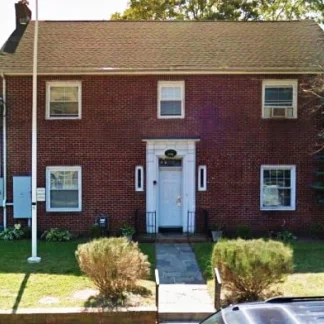Monmouth Medical Center - Outpatient
Monmouth Medical Center – Outpatient is a private rehab located in Long Branch, ...
New Hope- Philip House, located in Long Branch, New Jersey, provides halfway house accommodations and outpatient services to those struggling to overcome substance use disorder. Their services are catered to substance use, gambling, and co-occurring mental health disorders.
New Hope- Philip House provides co-ed outpatient treatment programming and gender specific transitional housing services. The Philip House provides accommodations for men only.
The outpatient program at Philips House begins with a collaborative effort where an individualized treatment plan is created. Outpatient is best suited for those who no longer need to be monitored 24/7 and who are able to fully participate in their recovery while returning home at night for sleep. This program consists of individual counseling, psychiatric care, medication as needed, and the flexibility to participate in day or evening classes. While this program is co-ed, it operates under the Philip House location.
The Philip House is a halfway home for men. They provide a safe and stable living environment where those new to sobriety can receive support during their recovery. The requirement is a commitment to abstinence throughout the duration of the stay. Learning new recovery and coping skills is practiced in service to help strengthen each person’s ability to reintegrate back into society. Individualized assistance helps ensure that specific pre-determined medical, psychiatric, vocational, and educational goals are met.
Individual therapy creates the space to explore the psychological challenges associated with the addiction. With the help of a professional, individuals are given the space and direction to talk about and process their emotions. Often this includes unresolved trauma, anger, depression, anxiety, and the need for more control or autonomy in life.
Group therapy involves treatment through the process of connecting in a group setting to discuss and work through mental, emotional, and physical issues. There are a number of different group therapy modalities, including support groups, experiential therapy, psychoeducation, and more.
Contact us for more information: (732) 870-8500

Connect with New Hope - Philip House by calling their admissions team directly.
(732) 870-8500 Website Get DirectionsThe Commission on Accreditation of Rehabilitation Facilities (CARF) is a non-profit organization that specifically accredits rehab organizations. Founded in 1966, CARF's, mission is to help service providers like rehab facilities maintain high standards of care.
CARF Accreditation: Yes
Research clearly demonstrates that recovery is far more successful and sustainable when loved ones like family members participate in rehab and substance abuse treatment. Genetic factors may be at play when it comes to drug and alcohol addiction, as well as mental health issues. Family dynamics often play a critical role in addiction triggers, and if properly educated, family members can be a strong source of support when it comes to rehabilitation.
Group therapy is any therapeutic work that happens in a group (not one-on-one). There are a number of different group therapy modalities, including support groups, experiential therapy, psycho-education, and more. Group therapy involves treatment as well as processing interaction between group members.
In individual therapy, a patient meets one-on-one with a trained psychologist or counselor. Therapy is a pivotal part of effective substance abuse treatment, as it often covers root causes of addiction, including challenges faced by the patient in their social, family, and work/school life.
Group therapy is any therapeutic work that happens in a group (not one-on-one). There are a number of different group therapy modalities, including support groups, experiential therapy, psycho-education, and more. Group therapy involves treatment as well as processing interaction between group members.
In individual therapy, a patient meets one-on-one with a trained psychologist or counselor. Therapy is a pivotal part of effective substance abuse treatment, as it often covers root causes of addiction, including challenges faced by the patient in their social, family, and work/school life.
In individual therapy, a patient meets one-on-one with a trained psychologist or counselor. Therapy is a pivotal part of effective substance abuse treatment, as it often covers root causes of addiction, including challenges faced by the patient in their social, family, and work/school life.
Monmouth Medical Center – Outpatient is a private rehab located in Long Branch, ...
New Hope - Epiphany House - Long Branch provides halfway home services specifica...
Little Silver Behavioral Health provides a wide range of psychological services,...
Jewish Family & Children’s Service is a private rehab located in Asbury Park...